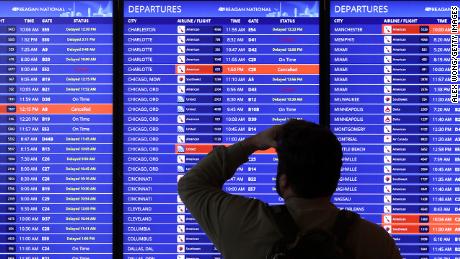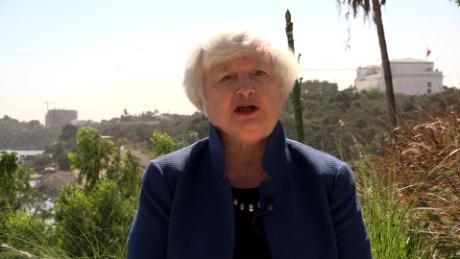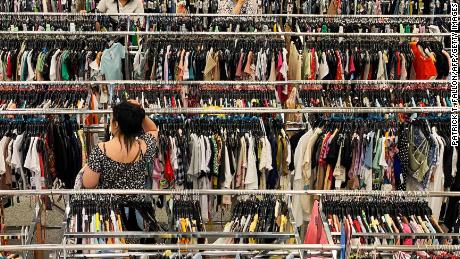Central governments and central banks are now creating trillions in money and credit and directing it to those they want to receive it. This will soon be followed by a debate, perhaps even a fight, about where this money should come from and who should have what in the new world. Such controls of spending and the ensuing political conflicts over it have occurred many times in history, especially when severe economic and financial downturns were accompanied by high levels of indebtedness and large wealth gaps. History has taught us that these conflicts take place both within and between countries. How these conflicts are resolved will determine whether the economic pie will grow and be divided well or contract and be divided through fighting.
Chances are that the new system we end up with will be significantly different from the capitalist system that we've gotten used to.
These sorts of changes to the world order have taken place many times in history, most recently between 1930 and 1945, in periods characterized by intensifying divisions over the best approach for divvying up wealth and power ŌĆö and over which economic and political system is most effective at doing so. For example, in the transition from the Roaring 1920s to the depressing 1930-1945 period, we saw relatively capitalist and democratic systems shift to systems that were more redistributive of wealth and more autocratic. Such systems included communism (extreme redistribution of wealth with autocratic political controls such as in Russia), fascism (autocratic control of both the economy and politics such as in Germany, Japan, Italy and Spain) and democratic socialism (more moderate wealth redistributions and more moderate moves toward top-down control that existed within democracies such as those in the United States and the United Kingdom). Under the pressure of such stress tests, some societies bend (e.g., the capitalist and democratic systems in the United Kingdom during the 1930s) and others break (e.g., Germany, Japan, Italy and Spain all abandoned their systems in favor of autocracy). Most countries in the world are now under that kind of stress.
As the current crisis unfolds, we should remember that throughout history, capitalism has proven to be the best system, though it can sometimes be highly flawed. It is typically best when it comes to allocating resources and raising a society's productivity and living standards because of how profit-making works. Very simply, if the value of a product is greater than the value of the resources used to produce it, it will be profitable and that endeavor will gain more resources. If the value of a product is less than the cost of the resources used to produce it, it will lose money and that endeavor will shut down. The system also financially rewards individuals who come up with products that people want and, if they can do that, it provides them with capital from investors who risk their own money based on their assessments of the economic merits of these ideas.
While this profit-making capitalism has worked well in this way, it has also been intolerably imperfect in providing equal opportunity. It has failed to deliver people equal opportunities to be productive if they can be and to take care of the basic needs of people who can't be. It also doesn't create limits on how bad people's living conditions can be or on how decadent spending can be. To me, most tragically, it allows vast numbers of children to grow up in environments of violent squalor, which is both economically and socially bad. It is economically bad because the costs of having large numbers of unproductive people are enormous compared to the benefits of having productive people. And it is socially bad because a system that doesn't provide equal opportunity can't be considered fair ŌĆö and unfair systems eventually lead to disruptive social conflicts.
To be clear, I'm not saying that there should be laws restricting how people spend their money, because I don't believe there should be. But I am saying that such huge gaps in spending and living conditions are threatening the existence of our system. It is for these reasons that I believe we need to reform capitalism, not abandon it.
To make society work better, the new system must both increase the size of the pie and divide it well. Our ability to consume is dependent on our ability to produce, not the amount of money we get in the mail. You can't eat money. Somebody must get paid to produce and deliver what we consume. And we can't raise our living standards by just giving people money ŌĆö they need to be incentivized to produce, and that must be done cost-effectively through some system that is not administered from the top. Most fundamentally, that system must strive to provide 1) equal opportunity to all those who have the potential to produce (because that is both most fair and most productive) and 2) basic needs to those who are unable to (because that is humane and what is fundamentally needed to have a good community).
Can't we all ŌĆö capitalists, socialists, Republicans and Democrats ŌĆö agree on that? Can't we all agree that whatever system we have, it must do a great job of both increasing the size of the pie and dividing it well?
If we can agree that these things are essential because the alternatives are terrible, then people of different ideologies will be more civil with each other and more willing to work through their disagreements thoughtfully so that we can achieve agreement for the good of the whole. We must figure out how to do that in a collaborative and skilled way. If we can't do that, we will have a civil war of some form that will tragically tear us apart and shrink the pie for everyone.






















